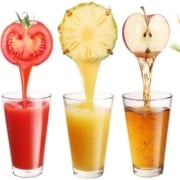Healthy Snack Bars Driving Category Sales
The healthy snack bar category grew by 2.08% from 2016 to 2017. This equated to $6 billion of sales in all snack bar categories. The growth of the snack bar industry is attributed to manufacturers offering a broad range of products to cater to the needs of different consumers.
According to culinary scientist Kyle Stuart, snack bars that feature all-natural ingredients are becoming too generic, and they fail to differentiate with customers these days. Consumers no longer want labels saying “all-natural” on their products. They want more specifications, so niche differentiation is a dominating trend in the snack bar market right now. This is the reason why snack bars are categorized depending on their purpose – energy provision, weight loss, meal replacement, snack, and so on.
Niche Differentiation Is Evident In The Snack Bar Industry
Niche differentiation of snack bars has resulted in category differentiation. There are now snack bars intended for daytime and evening consumption as well as those formulated with diet restrictions such as gluten-free, vegan, paleo, sugar-free, and much more.
The reason for niche differentiation is attributed to the growing needs of different consumers. For instance, some consumers buy a particular brand of snack bar because they opt for clean-label offerings while others buy because the ingredients used are simple and better for them.
Clean labeling is an important trend in the snack bar industry as many consumers value transparency. According to Carol Lowry, a senior food scientist at Cargill, product transparency is one of the biggest challenges food manufacturers, in general, are facing today. How can companies innovate while still using simple ingredients? It is something that’s hard to do especially if companies are after mass producing products that have longer shelf-lives.
Food Companies Are Starting To Innovate
Although challenging, this has presented an avenue for food manufacturers to explore and discover interesting combinations. For instance, the National Honey Board is now using natural sweeteners such as honey to make their breakfast biscuits and other products. Lowry and Cargill are looking into the use of vegetables and spices to provide savory flavors on their products instead of using artificial ingredients.
Food manufacturers are also looking into fortifying their products by using plant-based proteins sourced from beans, lentils, soy, nuts and many others. Food manufacturers see the need to incorporate such ingredients to their products to improve the nutrition profile and value of their snack bars.
And since it has been a long-standing issue that using clean ingredients produces products with lower shelf-life, food manufacturers are now using natural antioxidants like tocopherols instead of artificial preservatives to extend the shelf life of their products.
The Future Of The Snack Bar Category
The production of different kinds of snack bars has led to increased category innovation. While innovation involving the nutrition profile is the primary trend today, food scientists explain that there will be more changes in the future to improve the selling point of snack bars. Such innovations will tackle the texture and calorie count of products. Until then, consumers have a lot of things to look forward to when it comes to the snack bar industry.
Inspired by www.snackandbakery.com



